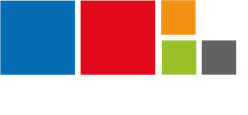A common complaint among people who work a lot behind a screen is a painful and tense feeling in the neck, shoulders, forearms and wrists. This pain often occurs as a result of the static tension of muscles, with little to no movement.
When muscles are active, they produce waste products. If these waste products are not removed in a timely manner through stretching and relaxation exercises, they can lead to acidification, irritation and pain. This can be prevented by regularly taking short microbreaks. These short breaks, during which stretching and relaxation exercises are performed, promote blood circulation. This allows oxygen and nutrients to be transported to the muscles and waste products to be removed.
Although exercising in our spare time is very valuable, it cannot completely solve the problem of prolonged static activity in front of a computer. Microbreaks are the ideal way to allow our body to recover regularly throughout the day.
Waste of time? On the contrary, research shows that microbreaks actually benefit productivity and often also improve the quality of our work.
Here are some tips for effective microbreaks:
You may feel some degree of muscle activity or stretch when performing these exercises. This is normal and indicates that the exercises are working. By regularly incorporating microbreaks into your working day, you can reduce the aching and tense feeling in your body and improve your well-being.
Extend the feeling of relaxation you experience on holiday all year round with these simple and effective microbreaks.
When muscles are active, they produce waste products. If these waste products are not removed in a timely manner through stretching and relaxation exercises, they can lead to acidification, irritation and pain. This can be prevented by regularly taking short microbreaks. These short breaks, during which stretching and relaxation exercises are performed, promote blood circulation. This allows oxygen and nutrients to be transported to the muscles and waste products to be removed.
Although exercising in our spare time is very valuable, it cannot completely solve the problem of prolonged static activity in front of a computer. Microbreaks are the ideal way to allow our body to recover regularly throughout the day.
Waste of time? On the contrary, research shows that microbreaks actually benefit productivity and often also improve the quality of our work.
Here are some tips for effective microbreaks:
- While working with a keyboard and mouse, regularly put your hands in your lap. Make it a habit to take your hand off the mouse when you read something on your screen.
- Let your arms hang loosely at your sides and make some rotational movements with your shoulders, both forward and backward.
- Interlock your hands and push your arms and palms forward as far as possible. Hold this position and relax.
- Place your hands behind your head, pull your elbows back as far as possible and relax.
- Squeeze your hands vigorously and then stretch your fingers open as far as possible in a fast and alternating pace.
- Alternately squinting your eyes closed and open, then look into the distance for about 20 seconds.
- Pull your chin towards your chest and slowly stretch your head back.
- From a sitting position, make yourself as tall as possible and then slowly relax.
- Place your hands on the armrests of your chair and press your body up.
- Pull your feet strongly towards you from your ankles, stretching your knees well.
- Breathe in and out calmly a few times. Let your exhalation last a little longer than your inhalation.
- Try to consciously smile once, it gives you a good feeling and has a relaxing effect!
You may feel some degree of muscle activity or stretch when performing these exercises. This is normal and indicates that the exercises are working. By regularly incorporating microbreaks into your working day, you can reduce the aching and tense feeling in your body and improve your well-being.
Extend the feeling of relaxation you experience on holiday all year round with these simple and effective microbreaks.

